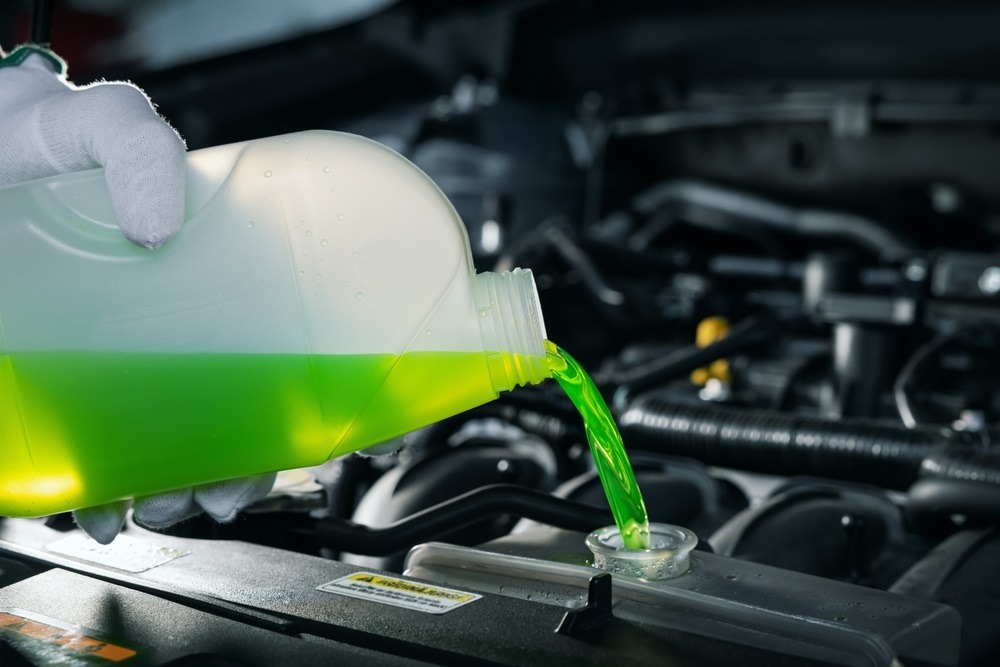Is Engine Coolant And Antifreeze The Same

The world of automotive fluids can be confusing, even for seasoned enthusiasts. Among the most vital is the fluid circulating through your engine, keeping it from overheating and freezing. You've likely heard it called both engine coolant and antifreeze. So, are they the same thing? The short answer is: not exactly, but they are inextricably linked.
Understanding Antifreeze: The Concentrated Protector
Antifreeze, in its pure form, is a concentrated liquid designed to be mixed with water. Its primary function is to lower the freezing point and raise the boiling point of the water it's mixed with. Most commonly, antifreeze is made from ethylene glycol or propylene glycol. Ethylene glycol offers superior heat transfer properties but is highly toxic, while propylene glycol is less toxic but slightly less efficient.
Think of antifreeze as the active ingredient, the concentrated power pack. On its own, it's not ideal for running in your engine. Why? Because pure antifreeze doesn't have the optimal heat transfer characteristics needed to efficiently cool the engine under normal operating conditions. Additionally, it can be more viscous and prone to gelling at lower temperatures if used undiluted.
Real-world example: Imagine trying to run your car in Alaska with just water in the cooling system. The water would freeze, expanding and potentially cracking the engine block. Antifreeze prevents this by lowering the freezing point, often down to -34°F (-37°C) or lower when mixed correctly.
Engine Coolant: The Ready-to-Use Solution
Engine Coolant is the result of mixing antifreeze with water, usually in a 50/50 ratio. This mixture provides the optimal balance of freeze protection, boil-over protection, and heat transfer efficiency for your engine. Coolant also contains additives that prevent corrosion and scale buildup within the cooling system. These additives are crucial for protecting the metal components of your engine, radiator, water pump, and hoses.
Therefore, engine coolant is the actual fluid that circulates through your engine. It's the diluted and additive-enhanced form of antifreeze, ready to perform its cooling and protective duties. Coolant formulations also differ, offering varying levels of protection and compatibility with different engine materials. Common types include IAT (Inorganic Additive Technology), OAT (Organic Additive Technology), and HOAT (Hybrid Organic Additive Technology). Using the wrong type can lead to corrosion and premature component failure.
Why the Confusion?
The terms are often used interchangeably, which contributes to the confusion. Many pre-mixed products are marketed as "antifreeze/coolant," further blurring the lines. In essence, they're referring to the same thing: a solution designed to protect your engine from extreme temperatures and corrosion. However, it's important to understand the distinction to make informed decisions about maintaining your vehicle.
Key Takeaways for Automotive Professionals and Enthusiasts:
- Antifreeze is a concentrated fluid that must be mixed with water.
- Engine Coolant is the ready-to-use mixture of antifreeze and water, with added corrosion inhibitors.
- Always use the correct type of coolant specified by the vehicle manufacturer. Consult your owner's manual for guidance.
- Never use straight antifreeze in your cooling system, as it is less efficient at heat transfer.
- Regularly check your coolant level and condition. A low coolant level can lead to overheating, and contaminated coolant can damage the cooling system.
- Consider flushing your cooling system periodically (every 30,000-50,000 miles) to remove contaminants and replenish the corrosion inhibitors.
Understanding the difference between antifreeze and engine coolant empowers you to properly maintain your vehicle's cooling system, preventing costly repairs and ensuring optimal engine performance. Next time you’re topping off your system, make sure you're adding the correct solution!
